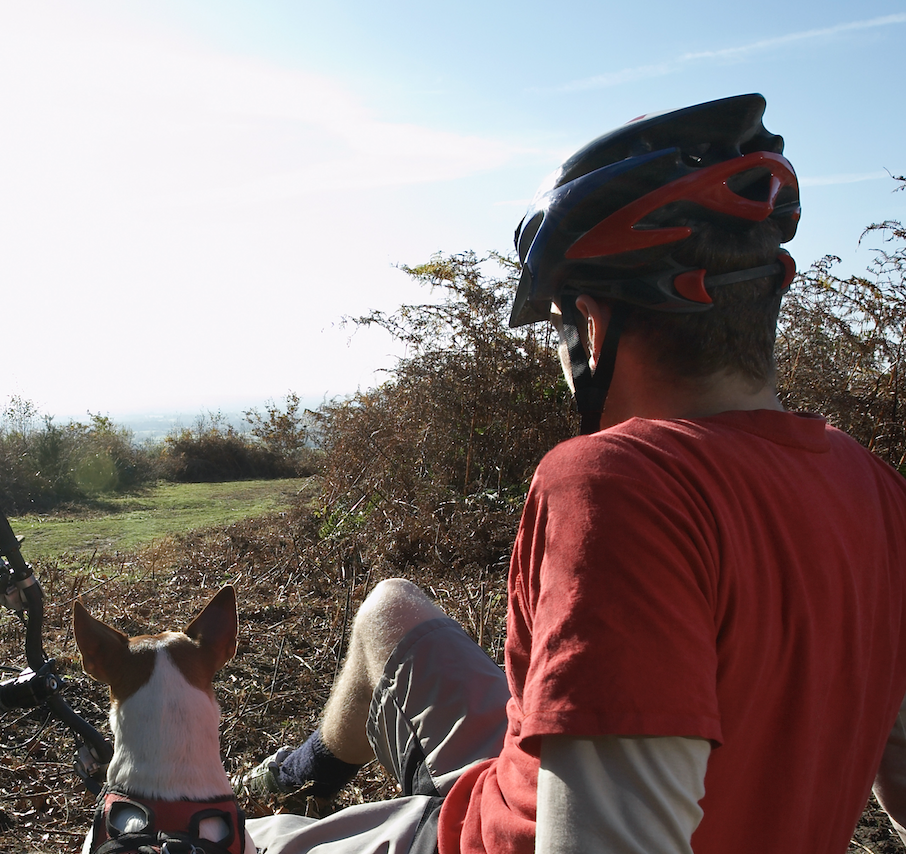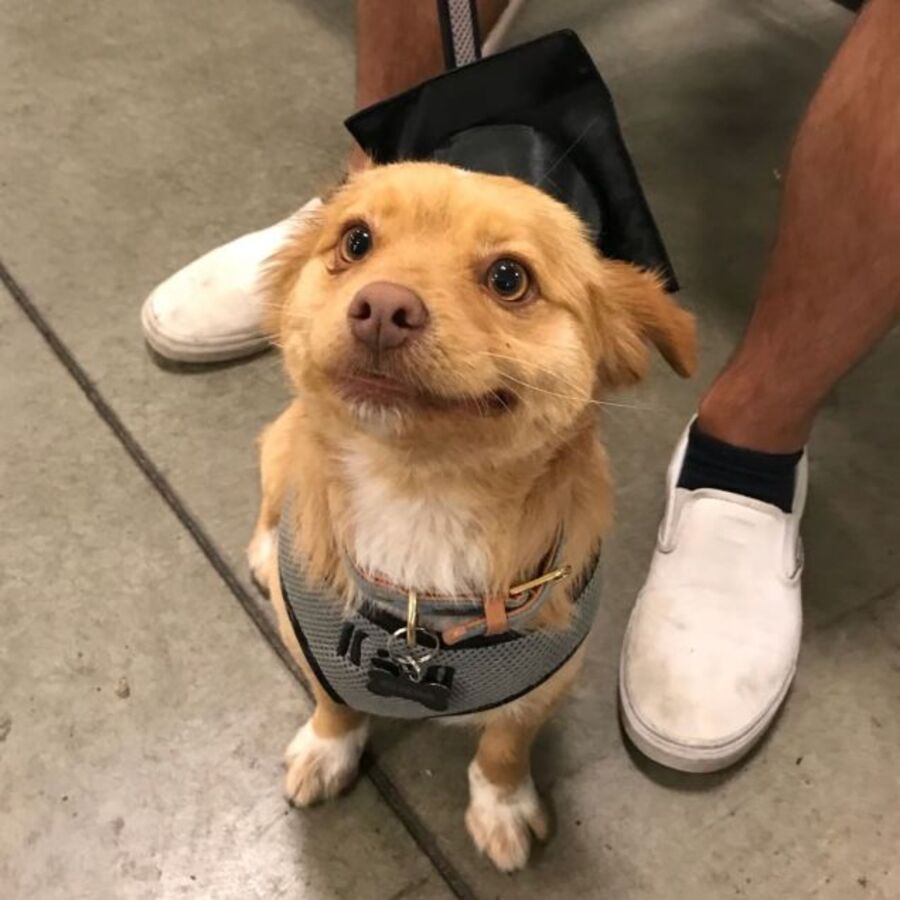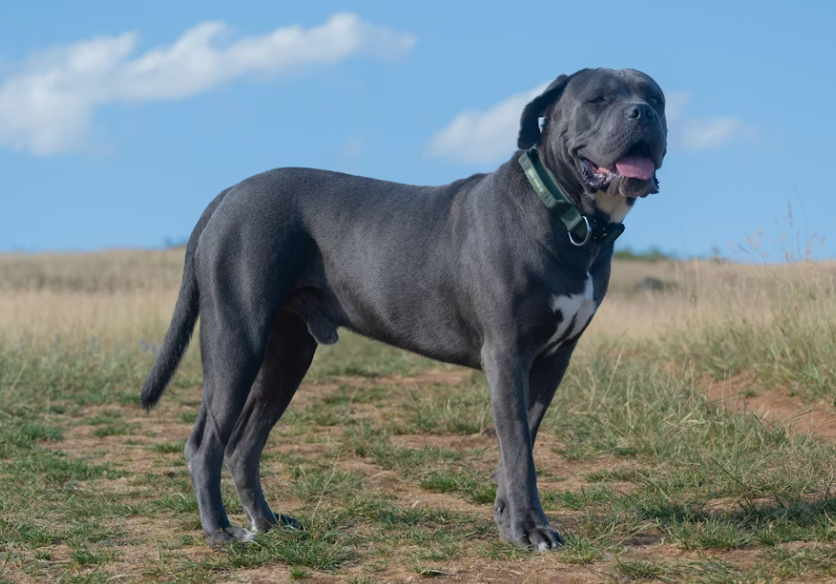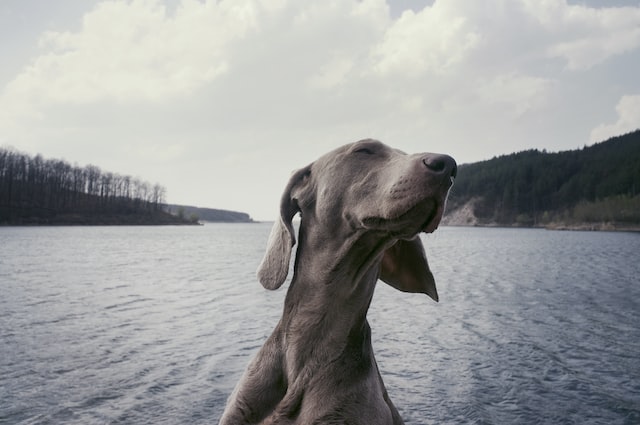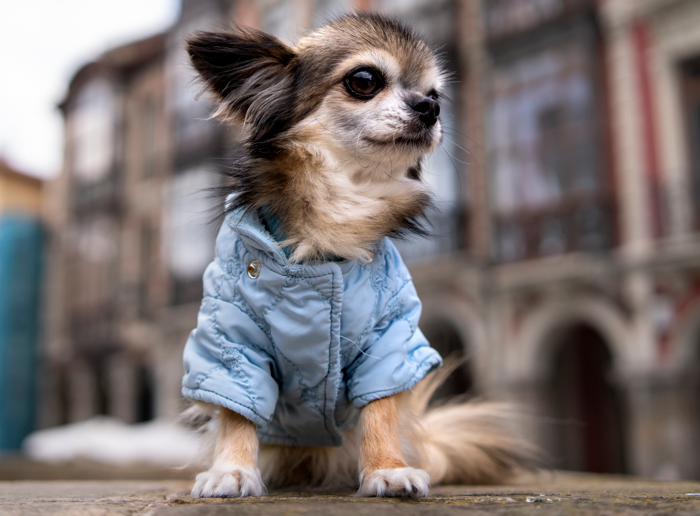
It’s quite amusing how a dog breed as small as the Chihuahua has gained the reputation of being a fierce, fearless guardian, often acting like they’re much bigger than their size would suggest!
Chihuahuas are beloved by many for their cute appearance and big personalities, and questioned by plenty, who may have had a negative experience with a breed representative due to their feisty nature or bold, sometimes overconfident demeanor.
Just like any dog, they have specific needs when it comes to their living space. Whether your furry friend is a Chihuahua, you are considering getting one, or you are simply curious about these cute little dogs and their living environment, today’s article is perfect for you!
Origin and Temperament
Chihuahuas originate in Mexico and are named after the state of Chihuahua, where they were discovered. The extinct breed Techichi, which was a companion dog breed kept by the ancient civilizations of Central and South America, is considered the ancestor of the modern Chihuahua.
The modern Chihuahua retains some of these ancient traits, such as their bold and confident nature. Despite their small size, Chihuahuas often display a large amount of courage and sometimes act as if they’re much larger than they really are. If you’ve ever met a Chihuahua and observed their behavior, you may remember the experience with a smile.
In terms of temperament, Chihuahuas can be quite independent and curious, and typically form strong bonds with their owners. They can be particularly loyal, protective, and sometimes wary of strangers, which makes them excellent watchdogs.
Their small size and energetic nature make them suitable for apartment living. However, this doesn’t mean you can simply put them on the couch and just let them be...These tiny dogs require careful attention to their needs in a confined space. With the right environment, a Chihuahua can thrive, but without attention to their specific requirements, they may become stressed and anxious.
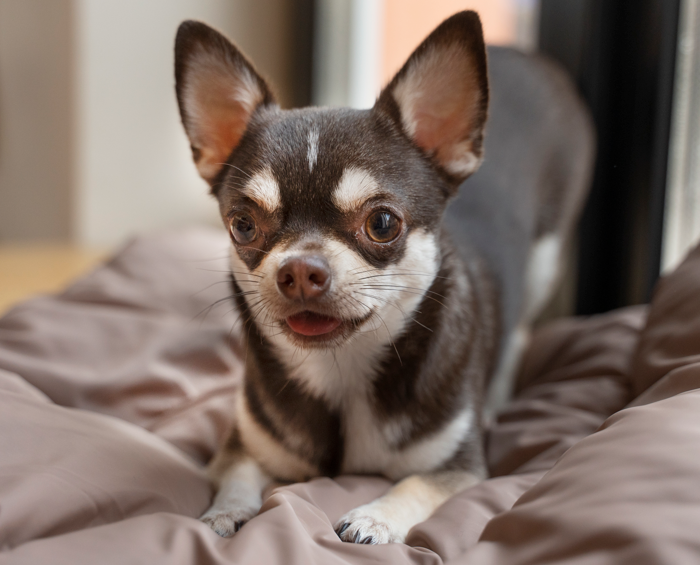
What Do Chihuahuas Need in a Home?
Chihuahuas may be small in size, but their needs when it comes to housing are far from minimal. You may need to remember that when looking for a dog of the breed. Providing a safe, comfortable, and stimulating environment is essential for ensuring their happiness and health.
Space Considerations
While Chihuahuas are one of the smallest dog breeds, they still need adequate space to move around and feel secure. A small apartment or a cozy home with designated areas for the dog to rest and play is often perfect.
However, it’s crucial to remember that their small size doesn’t mean they should be confined to small or cramped spaces all the time. They should have enough room to explore their surroundings freely and comfortably. Although they don’t need large yards to run around in, it’s still important to give them access to areas where they can stretch their legs. If you live in a smaller space, creating a safe indoor play area with toys and space to move can be beneficial.
Many Chihuahuas feel quite content with a well-arranged indoor environment as long as they have access to daily walks and playtime.
These little cute fellows can also benefit from designated quiet areas at home, especially if you have children or multiple pets. These areas can be set up in a room where your Chihuahua feels safe and comfortable, away from the dynamic family activities.
Bedding and Comfort
Chihuahuas love to be comfortable—who doesn’t?—especially when it comes to their sleeping arrangements. Their tiny size means they can get chilly quickly, so it’s essential to provide them with a warm and cozy bed. To ensure your furry friend is feeling comfortable, you may consider getting them a bed with cushioned sides or a soft, plush surface. Many breed representatives like to burrow into blankets, so a bed with a covered area can make them feel more secure.
Keep in mind that Chihuahuas may spend a lot of time resting, particularly if they are older or less active. Therefore, the quality of their bedding is important for their physical health as well as their comfort.
Depending on your paw partner's health, age, and lifestyle, you might want to provide them with an orthopedic bed for extra support for their joints and bones. This is especially helpful if your dog is older. Regularly washing their bedding to keep it clean and fresh is also an important part of maintaining a comfortable living environment.
Temperature Control
Due to their small size and low body fat, Chihuahuas can be especially sensitive to extreme temperatures. They can easily get cold during the winter, so ensuring that your home is warm and draft-free is important. During cold weather, you should provide your Chihuahua with a warm sweater or jacket for your walks outdoors.
On the other hand, Chihuahuas are also vulnerable to high temperatures and at risk of overheating. In the summer, it's important to provide them with access to cool, shaded areas. Air conditioning, fans, or cool mats can help regulate their body temperature and prevent overheating. We advise you to be mindful of signs of discomfort, such as excessive panting or lethargy, which may indicate heatstroke, especially if your Chihuahua has spent much time outdoors in the sun.
Exercise Needs
Even though Chihuahuas are small, they are energetic little dogs who need regular physical and mental stimulation. Without enough exercise, they may get bored and exhibit unwanted behaviors, such as excessive barking, chewing, or restlessness.
Their energy levels often surprise people, as they tend to have bursts of playfulness and curiosity throughout the day.
Daily walks are an essential part of their exercise routine, even if they're shorter than those required for larger breeds. Remember, a 20-minute walk is the minimum, even for smaller dogs. Aim to take your Chihuahua for at least two walks per day, each lasting 20-30 minutes.
However, each dog has individual needs that may greatly vary based on their health, age, and lifestyle, so for some canines, 20-30 minutes per walk may be ideal, but others may require less or more.
Chihuahuas also enjoy other activities like indoor play, fetch, or puzzle games that challenge their minds. Interactive toys are great for keeping them mentally engaged and helping them burn off energy when outdoor exercise isn’t possible.
Socialization and Interaction
Chihuahuas are naturally social dogs who thrive on interaction with their family members. They form strong bonds with their owners and love spending time with them. While they’re known for being affectionate, they also have a protective streak—especially when it comes to their favorite humans. Some of you may have already fallen 'victim' to a protective Chihuahua who won’t let anyone near their dearest person!
It’s important to encourage positive socialization with other people and pets from an early age, as Chihuahuas can sometimes become territorial or fearful if they aren’t properly socialized.
Their small size and tendency to be cautious around strangers make them excellent watchdogs, but they need training to distinguish between normal situations and threats. Early exposure to different environments, people, and other animals is important to help your Chihuahua develop confidence and reduce potential anxiety or aggression.
Since Chihuahuas are very loyal and loving, they enjoy cuddling and staying close to their humans. They often follow their owners from room to room and are known to seek out attention and affection.
This closeness can help strengthen the bond between you and your dog, but it also means they shouldn’t be left alone for long periods. Chihuahuas are known to suffer from separation anxiety if left alone for extended periods, so it's important to teach them to enjoy their time alone through desensitization and counter-conditioning, and also spend quality time with them.
Safety and Security
Chihuahuas are delicate dogs, which means their safety must be a top priority! Their size makes them more susceptible to injury, especially in busy households or homes with young children.
To avoid accidents, it’s important to create a safe space for your Chihuahua where they can comfortably rest and play. Using baby gates or pet barriers to restrict access to certain areas can help protect them from stairs, rooms with dangerous items, or small children who might handle them roughly.
In addition, watch out for potentially dangerous items, such as small objects that could be swallowed, cords that might be chewed, or toxic plants. Make sure any areas your dog has access to are dog-proofed and free of anything that could harm them.
Since Chihuahuas are also prone to being curious, make sure they’re securely contained when outside. They’re small enough to slip through gaps in fences or get into areas they shouldn’t, so it's important to have a secure, enclosed space for them to roam safely. Always supervise them when they are outside, even in a yard or garden, to prevent any accidents.
By ensuring that your Chihuahua's home environment is comfortable, safe, and engaging, you can help them thrive both mentally and physically. Providing these basic elements will help your furry friend feel secure and loved in their space!
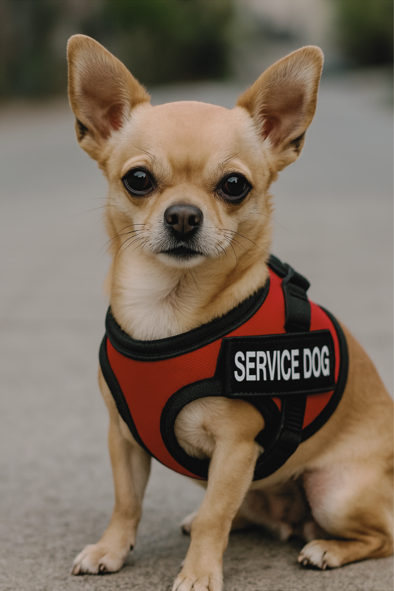
Chihuahuas as Service Dogs
Although they’re small, Chihuahuas can make excellent service dogs, especially in tasks that don’t require size and strength! This is essential to clarify, as there is still a misconception about service animals and what breeds can become such dogs.
Remember that unless certain breeds are specifically banned by your government, there aren’t restrictions on the types or breeds of dogs that can become service dogs.
The Americans with Disabilities Act (ADA) states: “The ADA does not restrict the type of dog breeds that can be service animals”.
Chihuahuas are particularly suitable for psychiatric service dog work due to their strong attachment to their owners and ability to sense changes in their emotional and behavioral patterns. Their alertness and ability to focus on their handlers can make them excellent for individuals who have anxiety, PTSD, or other mental health challenges.
Psychiatric service dog tasks these canines can be trained to perform include providing Deep Pressure Therapy, giving a kiss, nose-nudging, and other types of tactile stimulation, reminding the owner to take medication, interrupting repetitive behaviors, waking up the owner from nightmares, retrieving small items like medication, etc.
Due to their size, Chihuahuas may not be suited for more physically demanding tasks compared to larger breeds. Their small size and sometimes independent nature require an owner who can devote time to consistent training. But when they’re properly trained and socialized, Chihuahuas can be incredibly intuitive and helpful as service dogs, providing invaluable support.

